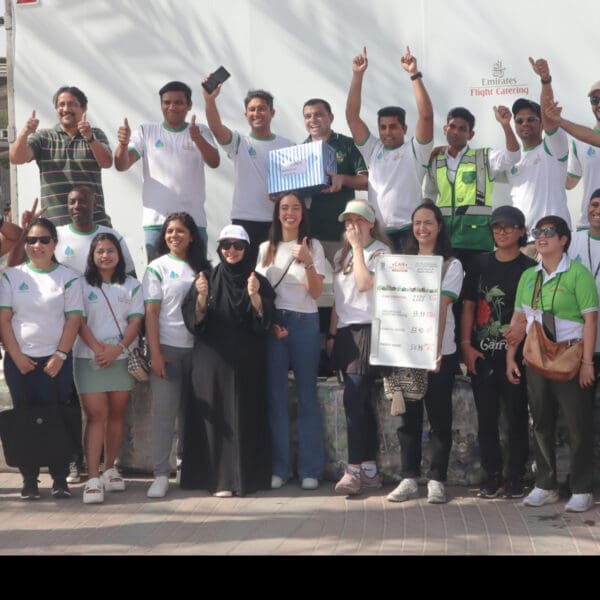 Lured by the promise of an experience that encompasses health, wellbeing and a pristine environment, a guest in the hospitality industry now expects sustainability to be a priority. One which promotes clean air and water, and fresh/healthy foods in a relaxed community setting where their happiness is paramount and where guests are ensured an emotional connection to their experience ultimately translating to a forever memory. In essence, the hospitality industry promises to make beautiful memories but is reliant on their environment to do so.
Lured by the promise of an experience that encompasses health, wellbeing and a pristine environment, a guest in the hospitality industry now expects sustainability to be a priority. One which promotes clean air and water, and fresh/healthy foods in a relaxed community setting where their happiness is paramount and where guests are ensured an emotional connection to their experience ultimately translating to a forever memory. In essence, the hospitality industry promises to make beautiful memories but is reliant on their environment to do so.
Unique to the hospitality industry is its vulnerability to adverse environmental change and dependence on healthy global ecosystems. However currently, and regrettably, we are positioned in a time of unprecedented global climate crisis and instability.
The good news is that as we recover from a global pandemic that decimated the industry, we are presented with a crucial opportunity to reimagine and prioritise sustainability.
Inger Anderson, Executive Director of the United Nations Environment Program (UNEP), emphasizes that we cannot merely return to our old “normal”. Instead, we must chart a future where we build low-carbon, nature-positive economies and societies.
Climate change and biodiversity loss now pose serious threats to the hospitality industry as more frequent storm events at a higher intensity than ever before threaten coastal hotels and communities, ski resorts are impacted from climate warming forcing many to diversify by investing in offerings beyond skiing such as bike trails and walking paths. Loss of biodiversity is also critically affecting the supply of foods as we are heading on track to exceed the safe ceiling of 1.5C warming.
Although the hospitality industry is reliant on the environment it has also historically been a significant contributor to environmental degradation. Huge amounts of water, energy and natural resources are used, greenhouse gases emissions are high and mountains of waste are generated daily.
An urgency exists to address environmental issues and to reduce the significant carbon footprint of the industry.
Sustainable practices in the hospitality industry
Sustainability is no longer a catchword, an ethical choice or a trend for the hospitality industry. Sustainability is an entrenched way of thinking and a specific management style that ensures long-term resilience of the industry.
Guests and travellers are increasingly seeking out and demanding more sustainable options for their experience, therefore a hospitality industry that emphasises the sustainable practices employed at their properties will ultimately gain a competitive advantage over those who do not.
Leading hotel brands around the globe are setting ambitious carbon-neutral targets and are utilising science-based target initiatives (SBTi) to achieve these goals.
For example:
- Hilton pledged to reduce scope 1 and 2 emissions by 61% by 2030. Marriott is committed to setting SBTi targets under the 1.5degree scenario and targets a 30% reduction in carbon intensity by 2030.
- 17 Sustainable Development Goals established by the UN provide a framework for the hospitality industry to become sustainable through innovations and the use of technologies to ensure a guest experience is enriched while the environment is also enhanced and the well-being of the community and staff is also valued. Globally the UN is aiming to have all 17 SDGs met by 2030. Accor, Marriott and Hilton are “best in class” examples of how hotels are using SDGs to drive change.
- Marriott International set goals to reduce its carbon footprint, conserve water and reduce waste, implement energy-efficient strategies, and is committed to sustainable purchasing. Six Senses Hotels and Resorts likewise have made sustainability a core part of their brand focusing also on reducing energy and water use while also promoting responsible tourism that supports the local communities and cultural preservation. Hilton and AccorHotels are also setting ambition targets. Hilton Worldwide aims to reduce its carbon footprint by 61% by 2030 and reduce waste by 50% by 2030.
- By employing comprehensive recycling and waste reduction programs that include strategic purchasing to ensure reduced waste, careful menu planning, elimination of single-use plastics and incorporating a circular economy whereby a hotel can reutilise a product, the hospitality industry can dramatically reduce waste and increase profit.
Sustainability not only encompasses environmentally friendly practices, it also includes social and governance elements that ensure social diversity, inclusion and fairness in the workplace and support for community development. Supporting local suppliers, and promoting cultural heritage hotels can contribute to the economic development of the communities they operate in.
Environmental, Social and Governance (ESG) reporting is now becoming the norm. Leaders in the hospitality industry are working to promote diversity at all levels and will use various metrics to track gender and racial/ethnic diversity in their workplace monitor employee turnover rates and ensure fair wages and working conditions.
Ensuring hiring practices are equal opportunities for all employees is an essential component of ESG reporting.
To conclude, it is fundamentally important that the hospitality industry recognises itself as a steward of the environment and develop strategies to actively protect it and the people who are part of the industry either directly or indirectly.
By adopting sustainable practices that include social and governance factors and employing innovations and technologies, we can protect the environment, mitigate the effects of climate change, and create a more responsible, profitable, and resilient industry.
Hotel associations, industry leaders and government bodies working together can educate the industry, travellers and the communities that rely on hospitality to develop and enforce sustainable guidelines and regulations.



















